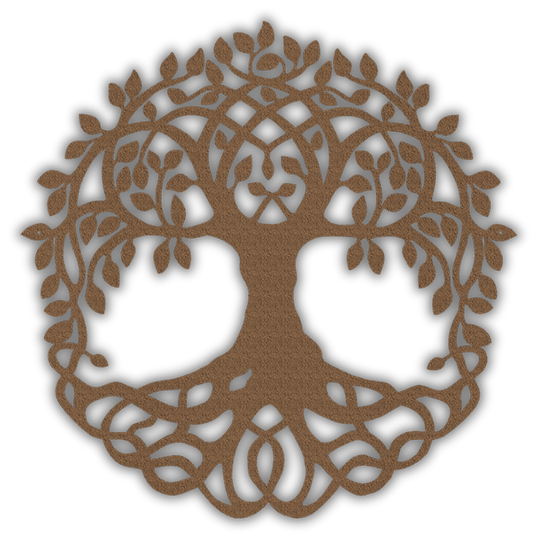Yew Tree Translation Services
French and German translation services

Words are hard, let me handle them!
Welcome

Welcome to my little corner of the world! Let me introduce myself. I’m Erika York, and I am a freelance French and German translator and French interpreter. I operate in the NE Indiana area. My main area of work is government documentation, but I also work with the medical field, genealogy/historical documents and immigration/refugee services. I am so glad you are here, and I look forward to working with you to meet your business needs!
About Me
For me, this almost all happened by accident. In high school in the early 00's, I decided to take French because I wanted to be “different.” I started off college studying music, but I decided it wasn’t for me. The only other thing I was really good at was French, so I switched my degree, and the rest is history as they say. I picked up German in the middle of all this, thanks to a love for German music, and added that to my repetoire. Before finishing college, I started volunteering as a translator and interpreter for my local Red Cross Chapter. IN 2010 - 2011, I lived in Strasbourg, France for school, and had a blast! Ever since, I’ve been doing this sort of work. I’ve also worked and volunteered as an ESL teacher, English teacher, Refugee Resettlment case manager, and mental health social worker.
Services
- French Translation
- German Translation (post 1945 and/or typed documents only)
- French Interpretation
- Genealogy research
- Cultural Brokering

Resume
Work Experience
- International Leadership School - English Teacher - August 2023 - present
- Language Services Network - ESL Assistant, Interpreter, Translator - May 2022 - present
- IOR Global Services - March 2023 - August 2023
- Catholic Charities - Refugee Resettlement Case Manager - July 2021 - July 2022
- Amistad Cristiana - ESL Instructor - May 2017 - September 2017
- YWCA of NE Indiana - ESL and Citizenship Instructor - November 2014 to October 2017
- LTC, Inc. - ESL tutor and French Interpreter - 2015
- Lifetime.Education - ESL Tutor - April - November 2015
- The Reclamation Project - ESL tutor, French Interpreter/Translator - Jun 2010 - June 2016
- The Red Cross of NE Indiana - French Interpreter/Translator - September 2009 - August 2012
Education
Bachelor’s Degree:
- Indiana University - Purdue University Fort Wayne
- B.A. Major: French, Minor: German, 2013
Study Abroad:
- Institut d’Etudes Politiques - Strasbourg, France
Master’s Degree:
- Kent State University - M.A. - In Progress

Sample Work
Philosophy and the Novel - Excerpt from “The Myth of Sisyphus” by Albert Camus
All these lives held in the miserly spirit of absurdity cannot be sustained without some deep and constant thought that animates them with its strength. Even here, there is a singular sense of fidelity. Conscious men have been seen accomplishing their tasks amidst the stupidest wars without believing that there is any contradiction. It’s a matter of not eluding anything. There is, however, a metaphysical delight in sustaining the absurdity of the world. Conquest or games, immeasurable love, the absurdity of revolt, these are tributes that man pays to his dignity in a campaign where he is already vanquished.
It’s a matter of abiding by the rules of combat. This thinking may be enough to nourish the spirit: it supported and still supports entire civilizations. No one is denying the war. One must die or live. In this way it is the absurd: it’s about breathing with it, recognizing its lessons and understanding its flesh. In this regard, the absurd joy par excellence, is creation. “Art is only art,” says Nietzsche, “We have art so that we do not die because of the truth.”
In this experience that I am attempting to describe and impart in many ways, it is certain that one torment arises where another one dies. The childish search for oblivion; the call for satisfaction now has no echo. But the constant tension that keeps man facing the world, the ordered delirium that pushes him to welcome everything leaves him with another fever. In this universe, the work is therefore the unique chance to maintain one’s consciousness and to fix its adventures. To believe is to live twice. The groping and anxious search for Proust, his meticulous collection of flowers, tapestries, and anguish signifies nothing else. At the same time, it has no more scope than the continuous and invaluable creation to which the comedian, the conqueror, and all absurd men deliver every day of their life. Everyone tries to mime, or repeat, and recreate the reality that is their existence. We always finish by facing our truths. Existence in its entirety, for a man who has turned away from the eternal, is no more than an excessive mime under the mask of the absurd. Creation is the greatest mime.
These men first know, and then all their effort is to wander, enlarge and enrich the island without future, on which they have just landed. But one must first know. Because the discovery of the absurd coincides with a pause where future passions are developed and legitimized. Even the men without the Gospel have their own Mount of Olives. And upon this one must not fall asleep. For the absurd man, it is no longer about explaining and resolving, but experiencing and describing. It all begins with a clairvoyant indifference.
To describe is the last ambition of absurd thought. To describe is the last ambition of absurd thought. Science too, having reached the end of its paradoxes, stops proposing and stops contemplating and draws the phenomena of the always virginal landscapes. The heart has learned, however, that this emotion that transports us before the face of the world does not come to us from its depth but from its diversity. The explanation is in vain, but the sensation remains and, with it, the incessant calls of a universe that is inexhaustible in quantity. By this point, the place of works of art is understood.
It will be enough to update a few themes common to the creator and the thinker so that we find in the work of art all the contradictions of thought engaged in the absurd. It is indeed less the identical conclusions which make the related intelligences than the contradictions which are common to them. So, with thought and creation. It almost goes without saying that this is the same torment that pushes men to these attitudes. It is here at this juncture they coincide. But, among all these thoughts that originate from the absurd, I have seen that very few have remained. And it is by their deviations or their infidelities that I best measured what only belonged to the absurd. At the same time, I have to ask myself: is an absurd work possible?
We cannot emphasize enough the arbitrary nature of the former juxtaposition between art and philosophy. If we want to understand it in a more precise sense, it is undoubtedly false. If we want to say that these two disciplines each have their particular climate, this is no doubt true, but also vague. The only acceptable argument resided in the contradiction raised between the philosopher locked in the middle of his system and the artists seated in front of his work. But this was true for a certain form of art and philosophy that here we find to be secondary. The idea that art can be separated from its artist is not only dated. It is false. Compared to the artist, it is noted that no single philosopher has ever created any systems. But this is true to the extent that no artist has ever expressed more than one thing in multiple ways. The instantaneous perfection of art, the necessity of its renewal, this is only true by prejudice. Because the work of art is also a construction, and everyone knows how great creators can be monotone. The artist, much like the thinker, engages and becomes himself in his work. This osmosis raises the most important of the problems concerning esthetics. Furthermore, there is nothing vainer, than making distinctions between methods and the objects for those who are persuaded by the unity of spirit. There are no borders between disciplines that man proposes himself to understand and love. They intertwine themselves, and the same anxiety binds them.
Contact Information